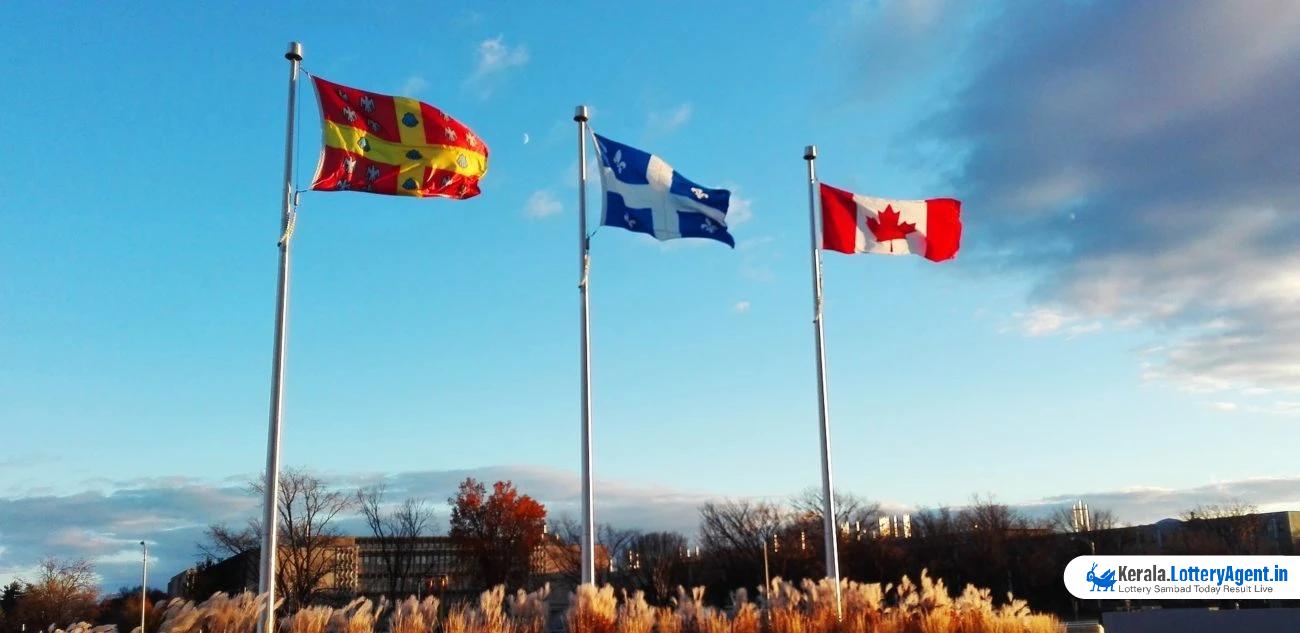
The world of North American sports betting is experiencing a surge, and it appears the almighty dollar is at the helm, propelling the industry into a new era of acceptance and legalization. The motivations are strikingly similar between the United States and its neighbor Canada, where monetary benefits are driving territories to embrace sports wagering. Nowhere is this more apparent than in Alberta, Canada, where market analysts predict sports betting will soon become a reality.
Yet, the most surprising call to action comes from Loto-Quebec, urged by the provincial government to cut down a colossal $1 billion in savings. This mandate arrives coincidentally as the Quebec Online Gaming Coalition disclosed the findings from an economic analysis by Mallette. The analysis highlights Ontario’s fiscal triumph, where it amassed $145 million in revenue in the 2022-23 period, the inaugural year for single-event wagering.
Ontario Lottery and Gaming Corporation hasn’t just inched forward; it has leaped, with profits escalating by an impressive 31 percent. These numbers are not falling on deaf ears; the coalition contends that any Canadian province could reap similar rewards by adopting a parallel model to Ontario’s. With Quebec’s considerable population of 8.5 million relative to Ontario’s 14.2 million, the potential for profit in Quebec could be significant.
The coalition, comprising heavyweight brands such as Betway, Bet99, DraftKings, Entain (BetMGM), FanDuel, Games Global, and Rush Street Interactive, all have a stake in the game with live wagering platforms active in Ontario. These industry players understand the fiscal implications and are eager to see sports betting’s geographic footprint expand.
While Canada positions itself to capitalize on the lucrative sports betting market, the U.S. grapples with its own legal intricacies. Mississippi, being the third state to legalize some form of sports wagering post the overturn of the Professional and Amateur Sports Protection Act in May 2018, met a legislative roadblock on 29 April. House Bill 774, aiming to introduce statewide mobile sports betting featuring up to 30 digital platforms, crashed and burned as it didn’t clear the Senate, and the conference committee failed to reconcile disparities.
Mississippi’s in-person and on-site mobile wagering is a far cry from the potential digital expansion. Neighboring states flaunting their digital betting prowess accentuate Mississippi’s lackluster offerings.
North Carolina, meanwhile, is wrestling with sports betting taxation fairness. Governor Roy Cooper voices the incongruence of taxing winnings without the possibility of deducting losses, urging legislative review. Senator Julie Mayfield further stirs the pot with SB 788, a bill prohibiting college player prop bets and in-person wagering at college event venues during the eight hours preceding and during an event. With pro sports venues in North Carolina already housing sportsbooks, these changes could significantly reshape the betting landscape.
The Lone Star State reveals a twist in public sentiment, with a Texas Hispanic Policy Foundation poll indicating majority support for land-based casinos and sports betting, although narrowly divided opinions on in-person sportsbooks at professional sports venues.
In a bid to leverage the Texan penchant for entertainment, the Texas Destination Alliance, backed by Las Vegas Sands, is ramping up support campaigns, pointing out the $5 billion spent by Texans on out-of-state entertainment annually.
Independent startup Sporttrade entered the Iowa market on 2 May via Wild Rose Casino & Hotel—its third U.S. market after Colorado and New Jersey. CEO Alex Kane ambitiously pitches Sporttrade as a beacon for bettors seeking a premium experience, promising better odds and dedicated customer care.
SoBet, another innovator, made headlines on 1 May for securing $3.7 million in seed funding led by Third Kind Venture Capital. The platform unites top wagering content creators, offering consumers a subscription-based haven for unique sports analysis and entertainment.
On the corporate front, Dave & Buster’s announced an audacious strategy to facilitate betting on its arcade games to loyalty customers aged 18+, albeit with a betting cap to ensure responsible gaming.
This sweeping summary of North American sports betting underscores a dynamic and ever-evolving market, increasingly swayed by financial incentives. As the stakes rise, both the U.S. and Canada find themselves at a crossroads, seeking the winning formula to balance regulation, market growth, and the lucrative promise of untapped revenues.












